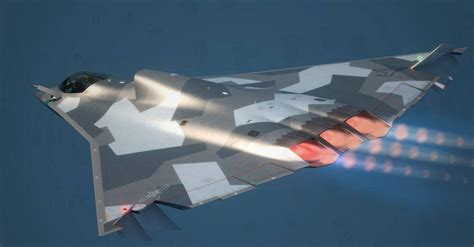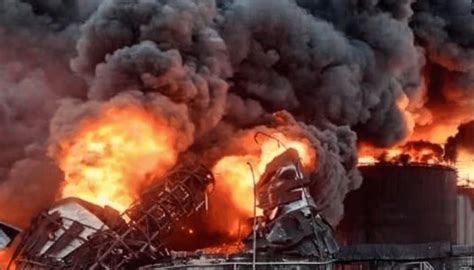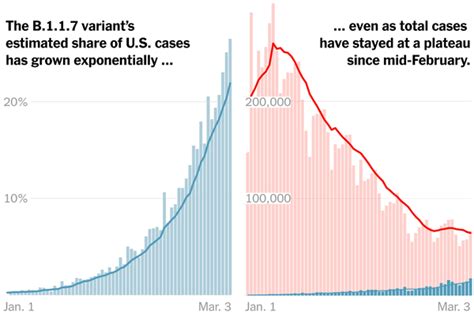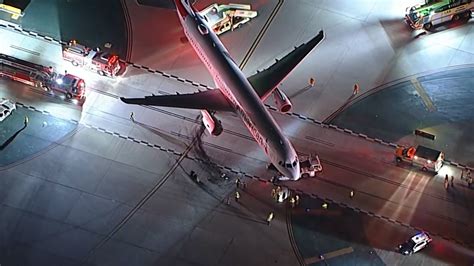
Finnish President Alexander Stubb has characterized Russian President Vladimir Putin’s invasion of Ukraine as a “huge strategic blunder,” arguing that it has strengthened the West and unified NATO, contrary to Putin’s apparent objectives.
Speaking recently, Stubb asserted that Putin’s actions had achieved the opposite of what he intended. “Putin wanted less NATO. He’s got more NATO. He wanted a weaker West. He’s got a stronger West. So, I think this war was a huge strategic blunder by Putin,” Stubb stated, highlighting the unintended consequences of the conflict. This assessment comes amidst ongoing discussions within NATO and among Western allies regarding the best strategies for supporting Ukraine and deterring further Russian aggression. Stubb’s comments underscore a growing consensus among Western leaders that Putin’s gamble in Ukraine has backfired, leading to increased geopolitical challenges for Russia.
The Broader Context of Stubb’s Assessment
Stubb’s remarks carry significant weight, given Finland’s unique geopolitical position and recent entry into NATO. Finland, sharing a long border with Russia, has historically maintained a policy of neutrality. However, Russia’s aggression in Ukraine prompted a significant shift in Finnish public opinion, leading to the decision to seek NATO membership. This decision, along with Sweden’s simultaneous application, marks a profound change in the security landscape of Northern Europe.
Finland’s accession to NATO, finalized in April 2023, more than doubled the alliance’s border with Russia. This development has fundamentally altered the strategic calculus in the region, providing NATO with a significantly enhanced defensive posture. Stubb’s perspective is informed by Finland’s intimate understanding of Russia’s security concerns and its evolving foreign policy.
Putin’s Strategic Miscalculations
Stubb’s assertion that Putin’s war is a “huge strategic blunder” is based on several key observations:
-
NATO Expansion: One of Putin’s stated goals in initiating the “special military operation” in Ukraine was to prevent further NATO expansion. He argued that NATO’s eastward enlargement posed an existential threat to Russia’s security. However, the invasion of Ukraine had the opposite effect, galvanizing public support for NATO membership in both Finland and Sweden. The addition of these two countries significantly strengthens NATO’s military capabilities and strategic depth in Northern Europe.
-
Western Unity: Putin likely anticipated that the West would be divided and unable to mount a strong, unified response to his actions in Ukraine. He may have believed that European dependence on Russian energy, coupled with internal political divisions, would limit the scope and effectiveness of Western sanctions. However, the invasion triggered an unprecedented level of transatlantic unity, with the United States and European Union coordinating closely on sanctions, military aid to Ukraine, and diplomatic pressure on Russia.
-
Military Performance: Russia’s military performance in Ukraine has been widely criticized, both in terms of strategy and execution. The initial expectation of a swift victory proved to be wildly optimistic, as Ukrainian forces, bolstered by Western aid, mounted a fierce and effective defense. The Russian military has suffered significant casualties and equipment losses, and its reputation as a modern, highly capable fighting force has been severely tarnished.
-
Economic Consequences: The war has had severe economic consequences for Russia. Western sanctions have restricted access to international financial markets, curtailed trade, and limited the transfer of technology. The Russian economy has experienced a sharp contraction, and the long-term impact of the sanctions is likely to be substantial. While Russia has sought to diversify its economic partnerships, particularly with China, it remains heavily reliant on energy exports, and the loss of European markets has been a major blow.
-
Geopolitical Isolation: Russia’s actions in Ukraine have led to its increasing geopolitical isolation. The country has been suspended from various international organizations, and its relations with many Western countries have deteriorated sharply. While Russia maintains close ties with some countries, such as China and India, its overall standing in the international community has been significantly diminished.
Finland’s Evolving Relationship with Russia
Finland’s relationship with Russia has been complex and multifaceted throughout history. As a former part of the Russian Empire, Finland gained independence in 1917. During World War II, Finland fought two wars against the Soviet Union: the Winter War (1939-1940) and the Continuation War (1941-1944). Despite these conflicts, Finland adopted a policy of neutrality during the Cold War, seeking to maintain good relations with both the Soviet Union and the West.
Following the collapse of the Soviet Union, Finland joined the European Union in 1995 but remained militarily non-aligned. However, Russia’s annexation of Crimea in 2014 and its subsequent aggression in Ukraine led to a gradual reassessment of Finland’s security posture. The full-scale invasion of Ukraine in 2022 proved to be the tipping point, prompting Finland to seek NATO membership.
Finland’s decision to join NATO reflects a profound shift in its threat perception. The country’s leaders concluded that Russia’s willingness to use military force to achieve its political objectives posed a direct threat to Finland’s security. NATO membership provides Finland with a credible deterrent against potential Russian aggression, as well as access to collective defense arrangements under Article 5 of the North Atlantic Treaty.
The Impact of NATO Expansion on Regional Security
The addition of Finland and Sweden to NATO has significantly altered the security dynamics in Northern Europe. The Baltic Sea, which was previously surrounded by NATO and EU member states except for Russia and its exclave of Kaliningrad, is now overwhelmingly dominated by NATO allies. This strengthens NATO’s ability to project power in the region and deter potential Russian aggression.
The enhanced NATO presence in Northern Europe also has implications for the defense of the Baltic states (Estonia, Latvia, and Lithuania), which are particularly vulnerable to Russian pressure. Finland and Sweden’s membership makes it easier for NATO to reinforce these countries in the event of a crisis.
However, NATO expansion also carries potential risks. Russia has repeatedly warned against further NATO enlargement, viewing it as a threat to its own security. The increased NATO presence in Northern Europe could lead to heightened tensions and a greater risk of military confrontation. It is therefore essential for NATO to manage its relationship with Russia carefully and to maintain open channels of communication to prevent misunderstandings and miscalculations.
The Future of the Conflict in Ukraine
The conflict in Ukraine remains ongoing, with no clear end in sight. Despite suffering significant setbacks, Russia continues to occupy large swathes of Ukrainian territory, and fighting remains intense along the front lines. The war has evolved into a protracted war of attrition, with both sides suffering heavy casualties.
The outcome of the conflict will have profound implications for the future of European security. A Russian victory would embolden Moscow and undermine the credibility of the West. It could also encourage other authoritarian regimes to pursue their own revisionist agendas. Conversely, a Ukrainian victory would send a strong message that aggression does not pay and would strengthen the rules-based international order.
The West faces a difficult balancing act in supporting Ukraine. On the one hand, it needs to provide Ukraine with the military and economic assistance it needs to defend itself. On the other hand, it needs to avoid actions that could escalate the conflict and lead to a direct confrontation with Russia.
The Role of Diplomacy
While military strength is essential, ultimately, a lasting resolution to the conflict in Ukraine will require a diplomatic solution. However, finding a mutually acceptable settlement will be extremely challenging. Russia is likely to demand territorial concessions from Ukraine, while Ukraine is determined to regain all of its territory, including Crimea.
Any diplomatic solution will need to address the underlying security concerns of both Russia and Ukraine. This could involve a new security architecture for Europe that provides guarantees for Ukraine’s sovereignty and territorial integrity while also addressing Russia’s legitimate security interests.
However, as long as Putin remains in power, the prospects for a genuine and lasting peace settlement remain slim. Putin’s regime is deeply invested in the narrative that the West is seeking to undermine Russia, and it is unlikely to compromise on its core objectives in Ukraine.
Frequently Asked Questions (FAQs)
-
Why does President Stubb consider Putin’s war in Ukraine a “huge strategic blunder?”
President Stubb believes the war is a blunder because it has strengthened NATO, unified the West, and isolated Russia, achieving the opposite of Putin’s stated goals. Putin aimed for less NATO influence, a weaker West, and a more secure Russia, but the invasion has led to NATO expansion with Finland and Sweden, increased Western unity in imposing sanctions and providing aid to Ukraine, and significant damage to Russia’s economy and international standing.
-
How has Finland’s relationship with Russia changed in recent years?
Historically, Finland maintained a neutral stance, but Russia’s aggression in Ukraine prompted a significant shift. Finland, sharing a long border with Russia, felt compelled to seek NATO membership for enhanced security. This decision reflects a profound change in Finnish threat perception, viewing Russia’s actions as a direct threat to its sovereignty.
-
What impact has NATO expansion had on the security dynamics in Northern Europe?
The inclusion of Finland and Sweden in NATO has strengthened the alliance’s military capabilities and strategic depth in Northern Europe. The Baltic Sea is now largely surrounded by NATO allies, enhancing NATO’s ability to project power and deter potential Russian aggression. It also improves the defense of vulnerable Baltic states. However, it also carries the risk of heightened tensions with Russia.
-
What are the potential economic consequences of the war for Russia?
The war has led to severe economic consequences for Russia, including Western sanctions restricting access to financial markets, curtailing trade, and limiting technology transfers. The Russian economy has contracted sharply, and long-term impacts include reduced access to European markets and increased geopolitical isolation, despite attempts to diversify economic partnerships with countries like China.
-
What are the possible future scenarios for the conflict in Ukraine and their implications for European security?
The conflict’s outcome could range from a Russian victory, which would embolden Moscow and undermine the West, to a Ukrainian victory, which would reinforce the rules-based international order. A lasting resolution will likely require a diplomatic solution addressing the security concerns of both Russia and Ukraine, potentially involving a new European security architecture. However, the prospects for a genuine peace settlement remain slim as long as Putin remains in power due to his regime’s entrenched narratives and objectives.
In-Depth Analysis: The Multifaceted Blunder
To fully understand why Stubb frames Putin’s actions as a “strategic blunder,” one must delve into the various layers of miscalculations and unintended consequences stemming from the invasion of Ukraine.
Misjudgment of Ukrainian Resistance:
One of Putin’s most significant miscalculations was the underestimation of Ukrainian resistance. Initial Russian assessments likely predicted a swift collapse of the Ukrainian government and military, paving the way for a quick occupation. This assumption proved disastrously wrong. The Ukrainian people, galvanized by a strong sense of national identity and a determination to defend their homeland, mounted a fierce and effective resistance.
Ordinary citizens took up arms, joining the Territorial Defense Forces and supplementing the regular army. The Ukrainian military, despite being outnumbered and outgunned, fought with skill and determination, leveraging Western-supplied weapons and intelligence to inflict heavy losses on the Russian invaders. The Ukrainian resistance not only stalled the Russian advance but also exposed serious flaws in Russian military planning and execution.
Underestimation of Western Resolve:
Putin also underestimated the resolve and unity of the West. He likely believed that European dependence on Russian energy, coupled with internal political divisions, would limit the scope and effectiveness of Western sanctions. He may have also hoped that the United States, distracted by domestic political challenges and other foreign policy priorities, would be unwilling to commit significant resources to defending Ukraine.
However, the invasion triggered an unprecedented level of transatlantic unity. The United States and European Union coordinated closely on sanctions, military aid to Ukraine, and diplomatic pressure on Russia. Western countries imposed sweeping sanctions on Russian banks, companies, and individuals, crippling the Russian economy. They also provided Ukraine with billions of dollars in military assistance, including advanced weapons systems that have proven highly effective against Russian forces.
Damage to Russia’s Military Reputation:
The war in Ukraine has inflicted significant damage on Russia’s military reputation. The Russian military, once considered a modern and highly capable fighting force, has been exposed as plagued by logistical problems, poor leadership, and outdated equipment. The Russian army has suffered heavy casualties and equipment losses, and its performance on the battlefield has been widely criticized.
The war has also revealed vulnerabilities in Russia’s defense industry. Western sanctions have restricted Russia’s access to critical technologies and components, hampering its ability to produce modern weapons systems. The Russian military is increasingly reliant on older, less sophisticated equipment, which makes it less effective against Western-backed Ukrainian forces.
Geopolitical Consequences and Isolation:
The invasion of Ukraine has had far-reaching geopolitical consequences for Russia. The country has been increasingly isolated on the international stage. It has been suspended from various international organizations, and its relations with many Western countries have deteriorated sharply.
Russia’s actions have also undermined its soft power and influence in the world. Its propaganda efforts have been largely ineffective, and its narrative about the war has been widely discredited. The war has exposed the brutality and ruthlessness of the Putin regime, eroding its international standing.
Long-Term Economic Fallout:
The long-term economic fallout from the war is likely to be severe for Russia. Western sanctions have crippled the Russian economy, restricting access to international financial markets, curtailing trade, and limiting the transfer of technology. The Russian economy has experienced a sharp contraction, and the long-term impact of the sanctions is likely to be substantial.
While Russia has sought to diversify its economic partnerships, particularly with China, it remains heavily reliant on energy exports, and the loss of European markets has been a major blow. The war has also triggered a brain drain, as many skilled and educated Russians have fled the country to avoid conscription and economic hardship.
The Strategic Implications for NATO:
The war in Ukraine has had profound strategic implications for NATO. The alliance has been revitalized and unified in the face of Russian aggression. NATO has increased its military presence in Eastern Europe, and its members have pledged to increase defense spending.
The addition of Finland and Sweden to NATO has significantly strengthened the alliance’s position in Northern Europe. These two countries bring highly capable militaries and strategic locations to the alliance. Their membership makes it easier for NATO to defend the Baltic states and to project power in the Baltic Sea region.
The Future of European Security:
The war in Ukraine has fundamentally altered the security landscape of Europe. The continent is now divided along stark lines, with Russia increasingly isolated and the West increasingly united. The war has also highlighted the importance of military strength and deterrence in maintaining peace and stability.
The future of European security will depend on several factors, including the outcome of the war in Ukraine, the evolution of Russia’s foreign policy, and the ability of the West to maintain its unity and resolve. It is essential for NATO and its allies to continue to support Ukraine, to deter further Russian aggression, and to work towards a lasting peace in Europe.
Conclusion: A Strategic Failure with Enduring Repercussions
President Stubb’s assessment of Putin’s war in Ukraine as a “huge strategic blunder” is not merely a political statement but a reflection of the profound and far-reaching consequences of the conflict. The war has backfired on Russia in numerous ways, strengthening NATO, unifying the West, damaging Russia’s military reputation, and isolating the country on the international stage.
The war has also had a devastating impact on Ukraine, causing immense suffering and destruction. The long-term consequences of the conflict are likely to be felt for years to come, both in Ukraine and throughout Europe. The path to a lasting peace will be long and difficult, but it is essential for the West to remain steadfast in its support for Ukraine and to work towards a future where Russia respects the sovereignty and territorial integrity of its neighbors. The ripples of this strategic miscalculation will undoubtedly shape the geopolitical landscape for decades, emphasizing the critical importance of strategic foresight and the potentially catastrophic consequences of misjudging the resolve of both nations and alliances.









